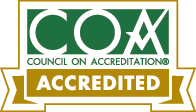Abilities and Skills for the Graduate Nurse Anesthetist Student
The School of Nursing affirms that all students enrolled in the graduate, Nurse Anesthesia program must possess those intellectual, ethical, physical, and emotional capabilities required to undertake the full curriculum and to achieve the levels of competence required by the faculty for safe professional practice.
The Advanced Practice Nurse Anesthetist must possess the knowledge and ability to effectively assess his or her client's biophysical, psychological, social, cultural, and intellectual domains. Further, the advanced practice nurse must competently analyze the assessment data through intellectual processing to arrive at a definition of the client's status or problem, plan independently or collaboratively for full range of therapeutic anesthesia interventions, execute all or part of the anesthesia care plan through advanced practice nursing acts, and evaluate the care delivered and the client's responses to it.
Candidates for advanced practice nursing must have the abilities and skills necessary for use of the nursing process. These skills and abilities include observations; communication; motor ability; conceptualization; integration and quantification; and behavioral/social acceptability. Technological compensation can be made for some handicaps in certain of these areas, but candidates must be able to perform in a reasonably independent manner. The use of a trained intermediary is not possible.
The following abilities and skills are necessary to meet the requirements of the curriculum:
Observations
The candidate must be able to observe patients and monitors accurately at a distance and close at hand. Observation necessitates the functional use of vision and tactile sensation. It is enhanced by the functional sense of smell.
Communication
The candidate must be able to speak, hear, and observe patients in order to elicit information; describe changes in mood, activity, posture, mentation, and consciousness; and perceive nonverbal communications. A candidate must be able to communicate effectively and sensitively with patients. Communication includes not only speech but reading and writing. The candidate must be able to communicate effectively and efficiently in oral and written form with all members of the health care team.
Motor
Candidates should have sufficient motor function to elicit information from patients by palpation, auscultation, percussion, and other assessment maneuvers. A candidate must have sufficient motor skills to gain access to clients in a variety of care settings and to manipulate the equipment central to the treatment of patients receiving anesthesia care. Such actions require coordination of both gross and fine muscular movements, equilibrium, and functional use of the senses of touch and vision. Examples of required fine motor skills would include, but are not limited to, preparation and administration of medications, assessment of vital signs, administration of general, regional, and monitored anesthesia care anesthetics, and insertion invasive monitoring lines. Examples of required gross motor skills would include, but are not limited to, positioning clients, transferring clients and maneuvering in confined spaces. In addition, the candidate should be able to lift and carry a minimum of 35% of his or her own body weight. Also, the candidate should be able to sit, bend, reach and/or walk and stand for most of the day.
Intellectual-Conceptual, Integrative, and Quantitative Abilities
These abilities include measurement, calculation, reasoning, analysis, and synthesis. Problem solving, the critical skill demanded of nurse anesthetists, requires all of these intellectual abilities. In addition, the candidate should be able to comprehend three-dimensional relationships and to understand the spatial relationships of structures.
Behavioral and Social Attributes
A candidate must possess the emotional health required for full utilization of his or her intellectual abilities, the exercise of good judgment, the prompt completion of all responsibilities attendant to the care of patients, and the development of mature, sensitive, and effective relationships with patients and all members of the healthcare team. Candidates must be able to tolerate physically taxing workloads and to function effectively under stress. They must be able to adapt to changing environments, display flexibility, and learn to function in the face of uncertainties inherent in the clinical problems of many patients. Compassion, integrity, concern for others, and appropriate interpersonal skills, interests, and motivations are all personal qualities necessary for professional nursing.
The citations for these guidelines are as follows:
-
Section 504 of the 1973 Vocational Rehabilitation Act and 42 U.S.C. 12101 et seq., the American with Disabilities Act (ADA)
-
Bower, D., Line, L., & Denega, D. (1988). Evaluation instruments in nursing (pp. 71). New York: National League for Nursing







